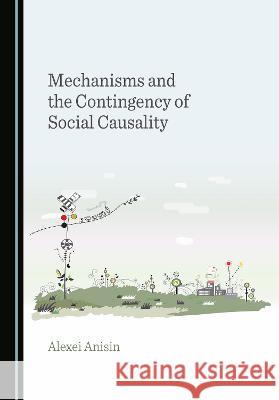Mechanisms and the Contingency of Social Causality » książka
Mechanisms and the Contingency of Social Causality
ISBN-13: 9781527586369 / Angielski
Mechanisms are frequently brought up across the natural and social sciences as supplements to laws and empirical regularities. Recent decades have seen an explosion in mechanistic explanations in which philosophers of science, natural scientists, and social scientists have advocated, debated, and criticized the usage of mechanisms in their respective disciplines. As the intensity of these debates has increased, our understanding of the historical origin of mechanisms remains incomplete. Of the explanations that have been put forward, it has been argued that the roots of mechanisms are to be found in mechanical philosophy. This book demonstrates that an important set of factors have been overlooked in our understanding of the ontology of mechanisms. In shifting attention to a never-before-explored terrain in the etymological and semantic evolution of what arguably is the most commonly used scientific term, "the mechanism," this text discovers that the origin of mechanisms is to be witnessed in ideas about social causality that arose within Ancient Greek tragedy and theater. It takes readers on a journey through socio-cultural settings and changes in Ancient Greece, early Christianity, the Roman Empire, and the Middle Ages, as well as the rise of science and modernity, and finishes in our current era of digital technology. As such, the book reveals how understandings of mechanisms have changed and evolved across time.











